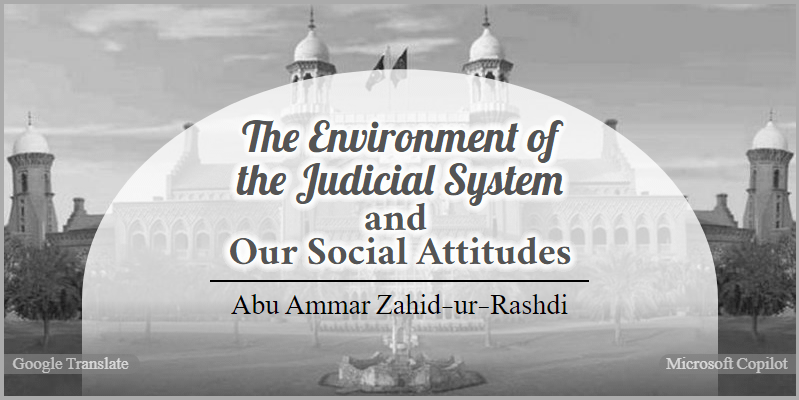The Environment of the Judicial System and Our Social Attitudes
“Punjab is the only region in the world where lies are told even on one’s deathbed. While hearing an application for the cancellation of bail for a robbery suspect, the honorable judge remarked that it was not his own observation, but rather a statement made by an English judge of the Lahore High Court in 1925. The English judge had written in his decision: ‘Do not believe the last statements of the people of Punjab; they lie even while dying.’ The judge noted that enmity is maintained even in final statements, often implicating entire families. He further explained that initially, a robbery is committed, and subsequently, the plaintiff, in collusion with the police, commits another robbery. The accused are first identified with the plaintiff’s help, and later, the ‘property’ is recovered through a raid. The plaintiff is then asked to certify that the recovered property belongs to him.”
(الشریعہ — اگست ۲۰۲۴ء)
الشریعہ — اگست ۲۰۲۴ء
جلد ۳۵ ۔ شمارہ ۸
صحابہ کرامؓ کے باہمی تنازعات کے بارے میں ائمہ اہلِ سنتؒ کے ارشادات
مولانا ابوعمار زاہد الراشدی
اردو تراجمِ قرآن پر ایک نظر (۱۱۵)
ڈاکٹر محی الدین غازی
متنِ قرآن کی حفاظت و استناد
ڈاکٹر محمد عمار خان ناصر
پاکستان قومی اتحاد کے صدر مولانا مفتی محمود سے ایک اہم انٹرویو
مجیب الرحمٰن شامی
مسئلہ قادیانیت: جدوجہد کے تیسرے مرحلے کی ضرورت!
محمد عرفان ندیم
تصوف ایک متوازی دین — محترم زاہد مغل صاحب کے جواب میں
ڈاکٹر عرفان شہزاد
حضرت رفیدہ رضی اللہ تعالیٰ عنہا
مولانا محمد جمیل اختر ندوی
مولانا ولی الحق صدیقی افغانی کی رحلت
مولانا شاہ اجمل فاروق ندوی
کتائب القسام کے ترجمان ابوعبیدہ کا تاریخی خطاب
ابو عبیدہ
مولانا ڈاکٹر عبد الوحید شہزاد
اسرائیل و صہیون مخالف ناطوری یہود (۱)
محمود الحسن عالمیؔ
گزشتہ دہائی کے دوران عالمی فوجداری عدالت کے ساتھ اسرائیل کی جھڑپیں
الجزیرہ
اہلِ عرب کی غزہ سے لا پرواہی اور اس کی وجوہات
ہلال خان ناصر
خلیفۂ ثانی سیدنا فاروق اعظم حضرت عمر بن خطاب رضی اللہ تعالیٰ عنہ
سید سلمان گیلانی
’’شیخ الہند حضرت مولانا محمود حسنؒ: شخصیت و افکار‘‘
مولانا ابوعمار زاہد الراشدی
’’علم کے تقاضے اور علماء کی ذمہ داریاں‘‘
مولانا زبیر اشرف عثمانی
سپریم کورٹ مبارک ثانی کیس کا ایک بار پھر جائزہ لے
متحدہ علماء کونسل پاکستان
The Environment of the Judicial System and Our Social Attitudes
مولانا ابوعمار زاہد الراشدی

